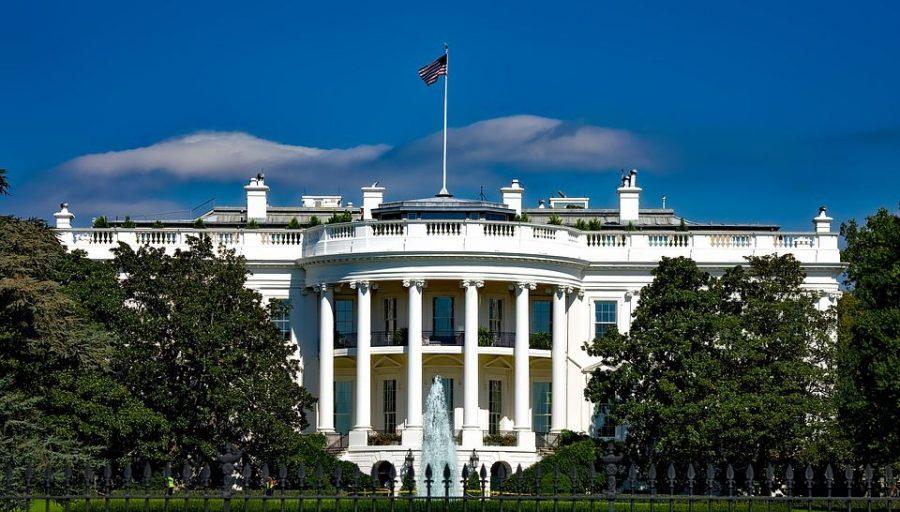Longest government shutdown in U.S. history
January 15, 2019
The United States’ government partially shut down Dec. 22 and has not opened back. The partial shutdown began when Congress and President Donald Trump failed to reach an agreement over a budget bill, which included a demand for $5.7 billion for a border wall from Trump in December.
The government has been partially shut down for over three weeks, making it the longest in U.S. history.
The next longest government shutdown lasted for 21 days under the Clinton administration December 1995 to January 1996.
Nine federal departments and agencies are affected by the shutdown, including Agriculture, Commerce, Justice, Homeland Security, Housing and Urban Development, Interior, State, Transportation and the Treasury.
The partial shutdown means about 25 percent of the US federal government has no funding. Only essential employees will continue working, but they will do so without pay.
“As of Dec. 26, 2018, I have been furloughed and most likely will not receive pay on Jan. 10,” said Ashley Morgan, a UNA alumni and Fitness Specialist for NASA at Marshall Space Flight Center.
Around 800,000 federal workers are now furloughed, temporarily laid off due to a lack of funding or working without pay.
“My employers say I should receive back pay upon returning to work when the government reopens,” Morgan said. “I’m unsure about a lot of the details, I just know I can’t go back to work until it reopens.”
Among the federal employees working without pay include 41,000 federal law enforcement and correctional officers from the FBI, the Drug Enforcement Agency, the Bureau of Alcohol, Tobacco, Firearms and Explosives and thousands of other law enforcement and correctional officers.
Employees in the Department of Homeland Security, including workers in Transportation Security Administration and the Coast Guard, and employees from Customs and Border Protection will work without a regular paycheck.
The National Park Service has suspended all non-emergency services, including all visitor services like public toilets, waste pickup, road maintenance and support centers, with over 21,000 employees now furloughed, according to bbc.com.
The parks remain generally accessible to the public, but conditions have deteriorated due to a lack of staff. Trash and other items have begun to accumulate in the parks due to the shutdown and lack of funding for clean-up.
Native American tribes receive substantial federal funding for essential services like healthcare and food as part of a deal negotiated decades ago in exchange for Native lands.
In Michigan, a Chippewa tribe has already been forced to use their own funds to pay approximately $100,000 to keep clinics and food pantries open, the New York Times reported.
The National Women, Infants and Children Association (WIC), which provides food and education to low-income pregnant mothers and children, and Supplemental Nutrition Assistance Program (SNAP) issued statements stating both will remain distributing and operating on the funds sustained prior to the shutdown at least through January.
“Over seven million mothers, pregnant women and children rely on WIC,” said Association President Rev. Douglas Greenaway.
Ninety-five percent of the staff at the office of Food and Nutrition Services is now on furlough and no longer receiving pay, according to businessinsider.com
Due to the government shutdown, the Violence Against Women Act expired and was not reauthorized. VAWA funds administers numerous programs assisting survivors of domestic violence and sexual assault. Grants already awarded under the law and some programs will not be affected, but future payment requests from programs that receive VAWA funding will be delayed until the law is reauthorized.
Many parts of the government, however, are still functioning. The Department of Veterans Affairs tweeted a reminder that payments to veterans are unaffected by the shutdown.
Social Security checks will continue to be sent to individuals. The US Postal Service is also unaffected. Its operations are funded not by taxes, but by the sale of postage and other products and services.
The Washington Post reported while hundreds of federal workers go without pay, the president’s cabinet secretaries, top administrators and Vice President Mike Pence are expected to receive annual raises of about $10,000.
Trump expressed openness to the idea of asking them not to accept the raise due to the shut down.
“Well, I might consider that, that’s something I might consider,” he said.


